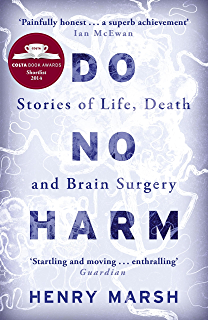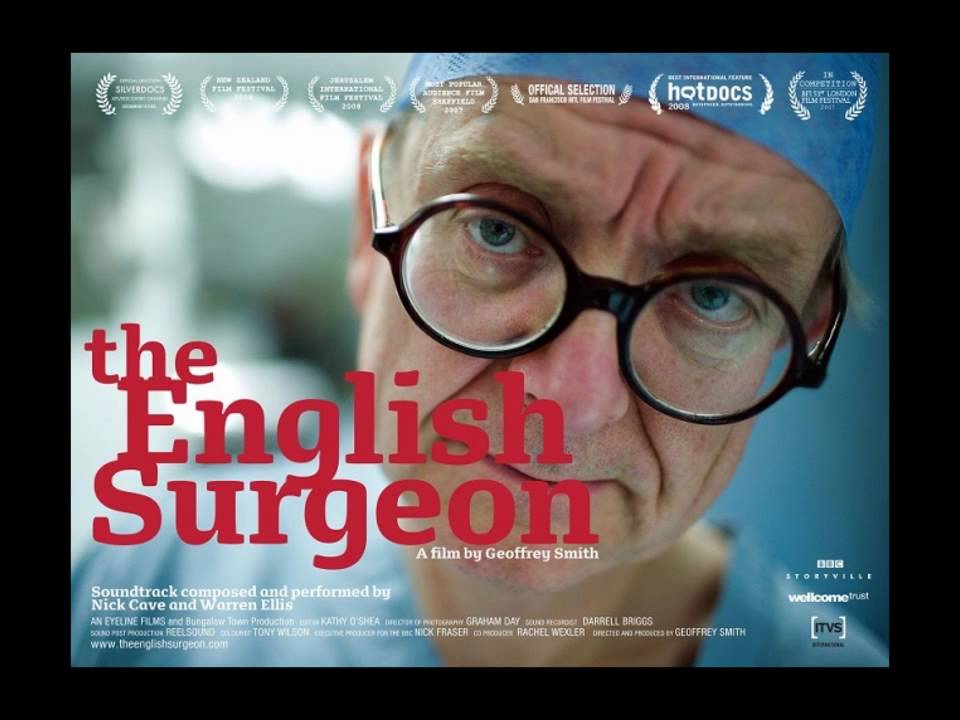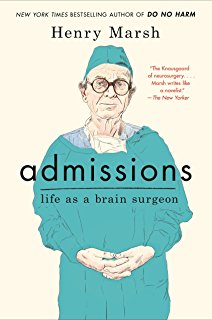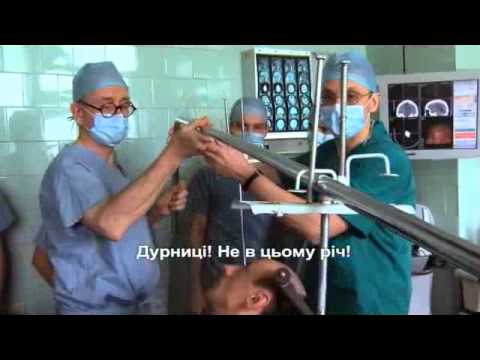|
With complete candour, Henry Marsh, one of the world's leading brain surgeons, told us in his fascinating talk on June 23rd that - despite major medical advances in recent years - operating on the brain is far from being a story of unequivocal success and he gave us an insight into the feeling of holding somebody's life in his hands, cutting into the material which creates, thought, feeling and reason.

Indeed, Henry recounted how some of his operations had saved the lives of children in profoundly moving triumphs - but there have also been harrowing disasters and haunting regrets. He stressed that brain operations are still always a question of balancing the risks of triumph with failure - and he had learned to live with the consequences of trying to perform a potentially life-saving operation which may go wrong. He said that operations on the brain can still carry grave risks and surgeons must make agonising decisions, often in the face of great urgency and uncertainty..
Henry was in conversation with Robin Laurance, who takes portraits of our speakers (including Henry) and has also spoken himself on two occasions. Over the years, Henry said he had progressed from being a young surgeon who, perhaps, felt he was capable of doing anything to a more realistic assessment of the success rate of operations and a more sanguine reaction when some failed, despite all his years of experience and skill.
One of the operations which gave him cause to reflect was on the brilliant structural engineer, Peter Rice, who had played a major role in the construction of ground-breaking projects, such as the Lloyd's building, in London, and the Pompidou Centre, in Paris. Whilst operating on a brain-tumour, Henry reflected that the cerebral matter he was working on had been capable of remarkable feats of engineering - and yet he was now incapable of saving it from destruction and Peter subsequently died.

Henry recounted many of his experiences, sometimes with black humour, in his best-selling memoire, Do No Harm, published in 2014, and he has followed this up with his latest book, Admissions. Henry always asks his patients if they would like a local or general anaesthetic, with the vast majority taking his advice and opting for a local. He much prefers this method of working, so he can ask patients for a response when he is operating on an area of the brain controlling, say, speech or movement - so he can assess the effect of his probing.
He also usually offers his patients a unique opportunity to view their own brain on a monitor - which, he conceded, is a relatively rare occurrence. With the cerebral cortex in a human being having anything between 15 and 33 billion neurons, it's evident that trying to eradiate the cause of any problem within the brain is a highly delicate operation - and one that requires huge dexterity.

Henry told us that, inevitably, the brain (which, he said, resembles shimmering gin rather than cottage-cheese, as some in the audience had thought)) shrinks with ageing and this can lead to dementia. although it's certainly not always a natural consequence - and he suggested that exercise and "trying to be happy" were two proven ingredients for warding off Alzheimer's Disease. At the other end of the age-range, he said the brain is far from fully formed in the late teens, especially at the front, which controls functions such as interaction with other people - and this can explain why young people can often be morose and socially clumsy.
Intriguingly, Henry told us that, after the Dragon and Westminster schools, he had initially studied PPE at Oxford before pursuing medicine and - like many current leading authorities on the brain - did not study a single science A-Level, suggesting wryly that you don't really need science to be a brain surgeon. For many years, Henry has worked at St George's Hospital, in south London and, ironically, confessed that he never wears a cycle-helmet when riding to work (despite operating on those with head injuries following an accident), but defended himself, saying he rode his ancient machine with great care.

In a vigorous cri de coeur, Henry claimed the UK spends a relatively small proportion of its GDP amount on health, compared with other leading countries - and told us that funding was at the heart of all the problems facing the NHS and he called for a Royal Commission to examine this key issue.
When living at his flat on Folly Bridge, in Oxford, Henry can often be seen writing in the Bodleian Library - but, not surprisingly, he is also supremely practical. Asked about his luxury if he were cast away on a desert island, Henry opted for a tool-box. Indeed, he has made an impressive range of furniture, in addition to keeping bees at his London home - producing honey which, he said, was of a far higher quality than that found in the countryside.
Nearly 140 people packed into the hall and were enthralled at Henry's insight and gentle humour when discussing such an intricate and delicate area of expertise. He also sold 19 copies of his book, Admissions, which had already been given a wide audience after it was Book of the Week on BBC Radio 4 a few weeks previously..
"Henry Marsh was a total star. Not only a leading brain surgeon, but also a magnificent honest and eloquent speaker - and writer. His conversation with Robin Laurance was so illuminating and served to emphasise his outstanding qualities of modesty, self-deprecation and also melancholy humour. We felt we were in the company of a magnificent and highly thoughtful craftsman, in all its facets - Richard Roughley, Witney
|